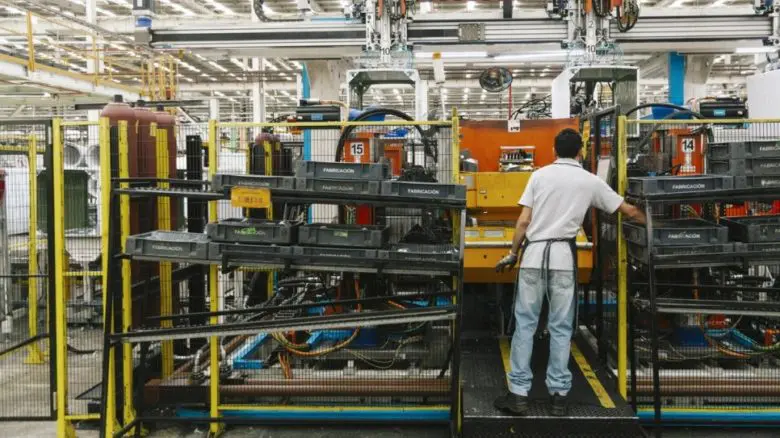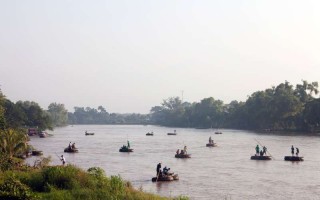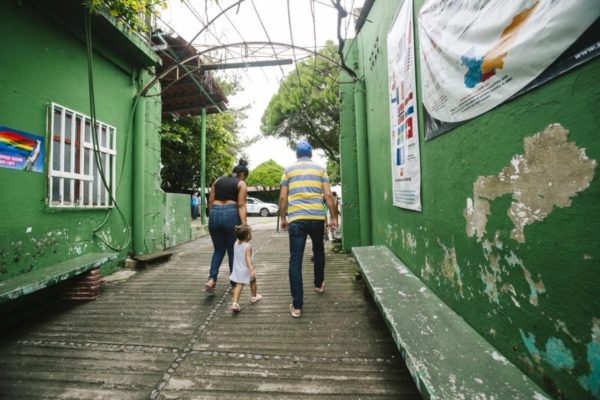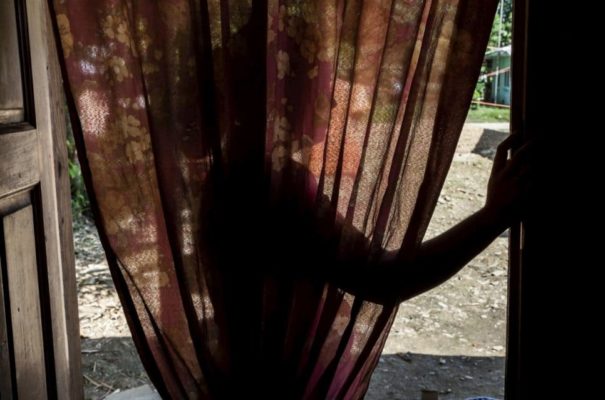
Mexico’s Mabe has shifted its production line to include products aimed at preventing the coronavirus.
© UNHCR/Gabo Morales
Staffed by refugees, storied appliance maker Mabe turns its production to safeguarding Latin America’s first responders.
By Silvia Garduño in Mexico City, Mexico
Deadly violence drove José Manuel* to flee his native Honduras. Now safe in Mexico, he is working to save lives.
He is part of a team making industrial scale washing machines, tweaked to better eliminate pathogens and slated to be donated to hospitals and clinics across Latin America treating COVID-19 patients, as well as to shelters serving refugees, asylum seekers and migrants.
The firm he works for, Mabe, is also producing so-called ‘aeroboxes,’ which turn plastic refrigerator shells into separator screens to help protect doctors, nurses and other frontline medical personnel during the delicate process of intubating patients.
“This will help families in shelters a lot.”
“I am very proud to contribute with my work and help others during the pandemic,” says the father of two, taking a break from the factory production line he runs in the city of Saltillo, in northern Mexico. “This will help families in shelters a lot.”
José Manuel is among more than 100 refugees and asylum seekers employed at Mabe, which was itself founded 74 years ago by two entrepreneurs escaping the turmoil of post-Civil War Spain. The firm is now one of the world’s largest appliance makers.
Uprooted from his Central American homeland by gang members’ death threats, José Manuel arrived in Mexico in 2016 with his family – their lives crammed into just a couple of suitcases.
Following their relocation from a town on Mexico’s southern border to Saltillo, a few hours drive south of Texas, José Manuel started at Mabe in 2016 and is now a lead on the washing machine production line.
The relocation programme, run by UNHCR, the UN Refugee Agency, transfers thousands of refugees from crowded entry points in southern Mexico to prosperous industrial hubs in the centre and north.
There, they are more likely to find steady jobs, which in turn allows them to better integrate into Mexican society. In 2019 alone, the agency relocated more than 5,500 people, providing them with assistance to help get them on their feet in their new host cities.
“They’re hungry to do well and take full advantage of the opportunity they’ve been given.”
The scores of refugees from Honduras, El Salvador and Guatemala who are employed at Mabe “are extremely committed to the company and are hungry to do well and take full advantage of the opportunity they’ve been given,” said Pablo Moreno, the firm’s head of corporate affairs.
Latin America is currently one of the epicentres of the coronavirus pandemic. Mexico, with its population of 130 million, has the fourth-highest number of recorded COVID-19-related deaths in the world, after the United States, Brazil and India, according to Johns Hopkins University’s global coronavirus tracker.
To date, MABE has manufactured and donated more than 30,000 aeroboxes and 500 washing machines to hospitals, clinics and shelters throughout Mexico, Panama, Costa Rica, Honduras, El Salvador, Guatemala and Dominican Republic.
And that makes Moreno proud of his refugee workforce. “We’re really pleased that our refugee employees are on the front lines of the fight against the coronavirus.”
*Name changed for protection reasons.
Originally published by UNHCR on 16 October 2020.





